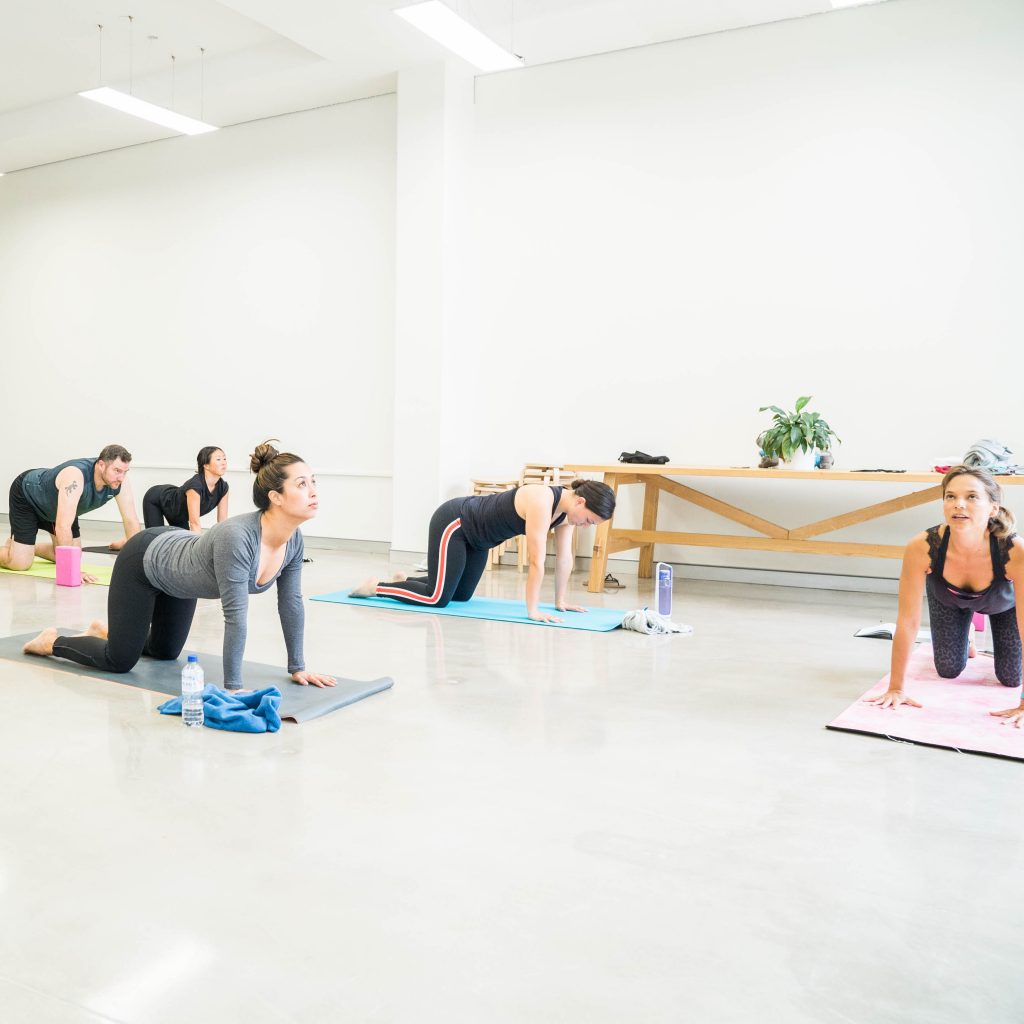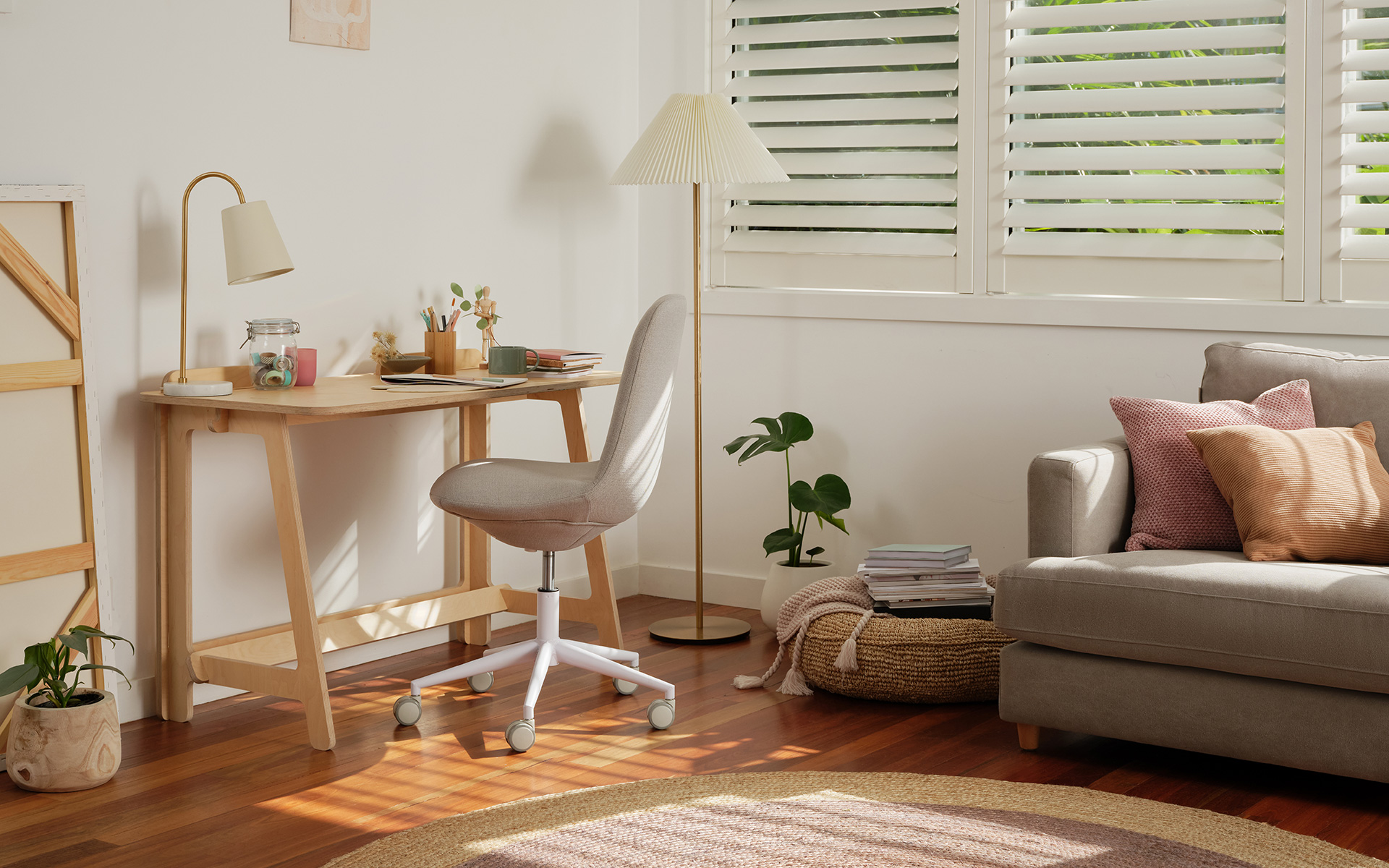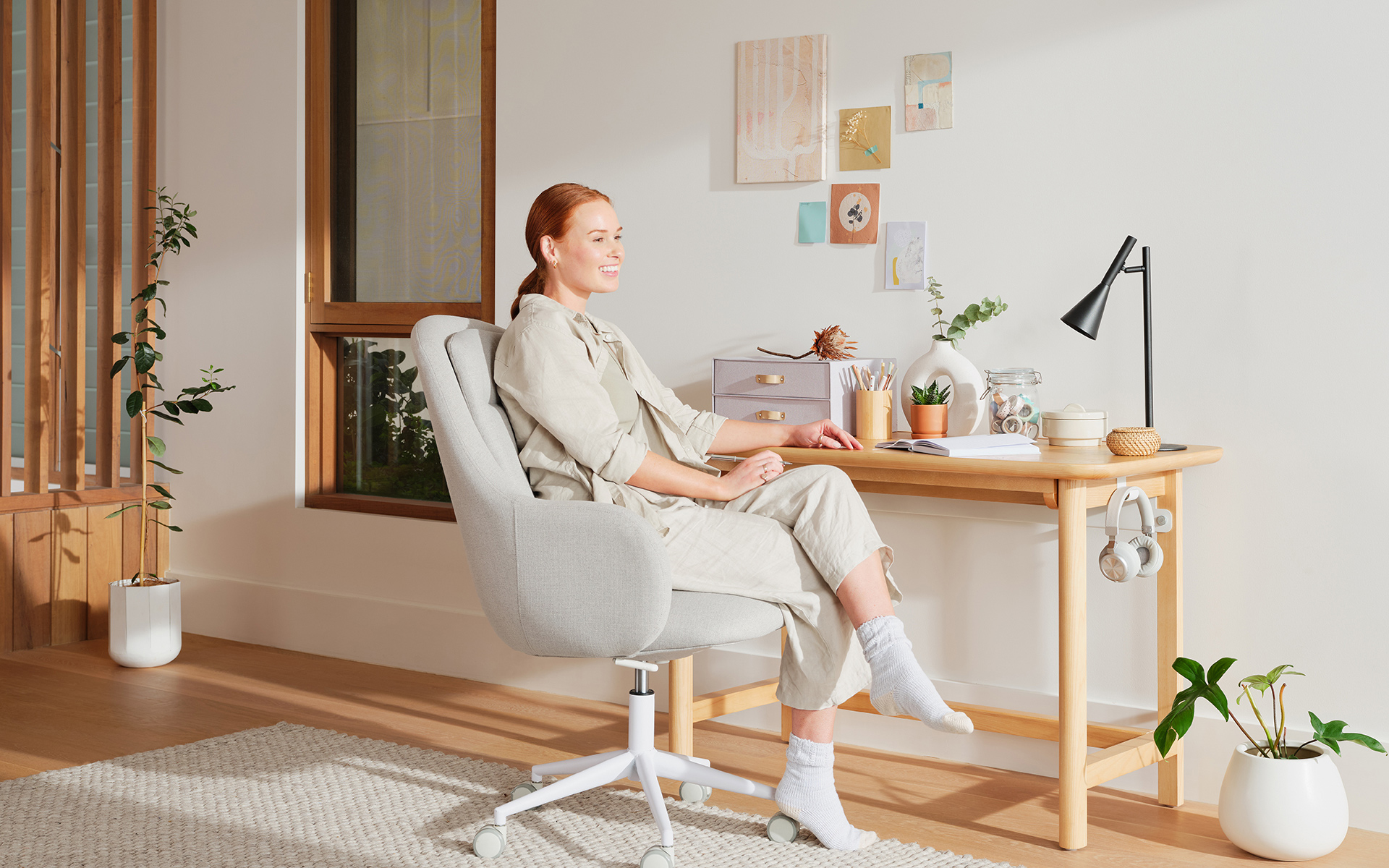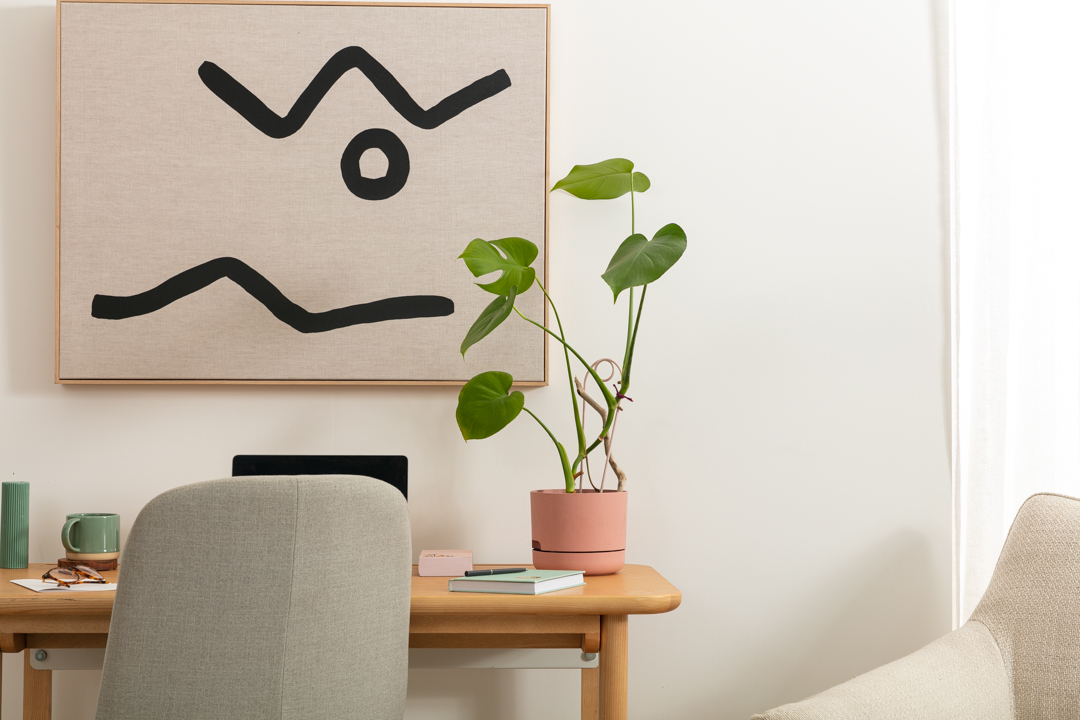Whether you’re a seasoned WFH worker or have become one, transitioning can be challenging and overwhelming, especially when it comes to your health.
Here are our top tips to help you stay productive, happy, and healthy.
Set up a separate workspace
Setting boundaries between your work and home are the best way to start to avoid slipping into bad habits. Find a space in your home that’s designated solely for work. In order to maintain a healthy balance between work and play, make a distinction between the hours you need to be professional from the personal. This will help you set a mindset between work and play. Here’s how to create the MVPs of WFH set ups.
Get up every hour and get out at least once a day
At home or not, it can be easy to get stuck in your seat. Without coffee breaks or meetings, we can tend to forget something as simple as standing up. Set a timer or use an app to remind you to get up and stretch your legs and eyes every hour. It is also important to get outside at least once a day. Walk around the block and get some sunshine and fresh air. Taking a break away from your screen can make you feel better, refreshed and motivated.

Set a schedule and stick to it.
One of the most tempting things about working from home is sleeping in and working odd hours. Although it might seem logical, it can be detrimental.
Some experts believe that you tend to adopt the characteristics associated with what you’re wearing. In fact, one 2012 study found that people who thought they were wearing a doctor’s lab coat displayed heightened attention, while those who were told it was a “painter’s” coat weren’t as attentive.
To increase the quality of your mental health and quality of work, you should set a schedule as if you were going to the office and maintain the same routine as if it were any other day, like showering, breakfast, getting dressed.
Make time for exercise
When you create your schedule, use the flexibility to your advantage. Schedule work outs as you would meetings. It can be something like a run or walk first thing in the morning, or a quick HITT blast or yoga at lunchtime.
Meditation and mindfulness
Studies have shown that meditation and mindfulness can reduce stress, help control anxiety and promote emotional health(1). Try sitting in a comfortable place with your eyes closed and focus on your breathing for five minutes. Or try one of the excellent meditation apps out there, like Smiling Mind. Doing this before you check your phone or open your emails could give you a much-needed moment of calm before you start work, or give you a ‘reset’ during the day if you’re feeling stressed.

Create a soothing environment.
Staying home, means you can control your environment and create one that suits you. Whether that’s scented candles, you can create a space that will be soothing for you and keep stress levels under control.
Who doesn’t lock snack time, really. Being in such close proximity to our kitchens, it can be hard to keep away, especially when that 3pm sugar slump hits. So it is important to make sure you’re stocking your kitchen with healthy snacks too, and, you can even snack on foods that can maximise productivity. So next time you go grabbing those chips or Tim Tams, think again. Here are some snacks you can eat to boost productivity and more.
Almonds — increase focus
Green tea — contains an amino acid called L-theanine that improves focus and helps the brain stay alert.
Bananas — contains glucose to give you energy to stay focused and carbohydrates to keep you feeling full longer
Eggs — B vitamin called choline, which is known to help improve memory and speed up reaction times
Dark chocolate — abundance of nutrients that contribute to your work performance. The sugar and caffeine in dark chocolate gives you just the right amount of energy to get work done without getting the post-coffee jitters. The magnesium in chocolate also helps relieve stress and anxiety.
Water — hydration play a big role in productivity. Made up of 80% of water, your brain highly depends on you staying hydrated. drinking lots of water (recommend 8 glasses or 2 litres a day) can not only boost energy levels significantly, but improve your mental flexibility by 14%. (2)
Apple & Peanut Butter — Apples are very rich in antioxidants and have about 13g of sugar, which make them a more effective source of energy than coffee. Pair them with a tablespoon or two of natural peanut butter and you have the perfect combination of energy and protein to keep your mind sharp and your tummy full.
Yogurt & Granola — great snacks to curb late-night sugar cravings and ease hunger pains so you can be well rested for the day ahead.
Carrots & Hummus — The luteolin found in carrots helps improve memory, while hummus contains Omega 3 fatty acids and amino acids which help improve intelligence and boost your mood. Hummus also packs lots of protein and calories that help curb your hunger longer.


